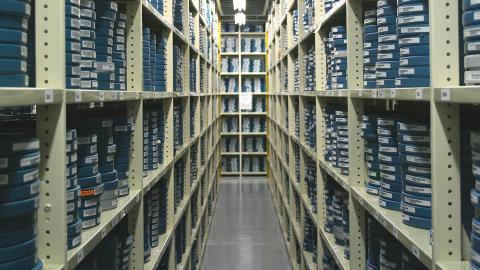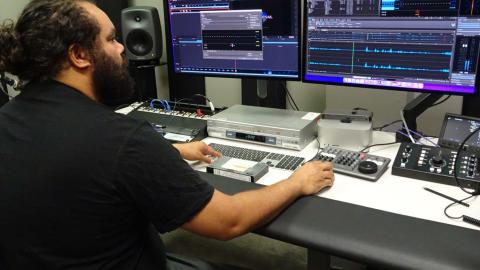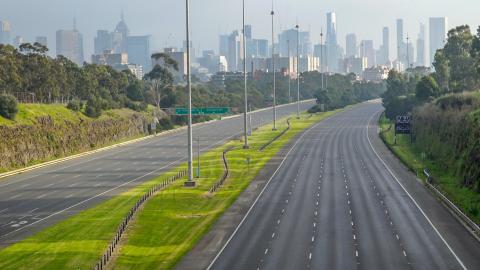

The Adventures of Jonathan Dennis
Tēnā koutou. Kō Ingarihi, Kō Airihi, Kō Kotimana ōku iwi. Kō Kelly tōku hapu. Ko Emma taku ingoa.

My name is Emma Jean Kelly and I’m visiting Australia’s National Film and Sound Archive from Auckland, Aotearoa (New Zealand) for a month-long internship. The above introduction describes my roots as English, Irish and Scottish, New Zealand born.
I’m in Canberra to further develop research on Jonathan Dennis (1953-2002), the founding director of the New Zealand Film Archive Ngā Kaitiaki O Ngā Taonga Whitiāhua (The Guardians of the Treasured Images of Light.)
I’m particularly interested in the relationship between the NFSA and the NZFA in the 1980s while Jonathan was director of the archive and the later work he did in Australia that had a connection with the NFSA.
Jonathan was a colourful, passionate, opinionated cinephile who, with a dedicated group of similarly enthusiastic filmmakers and fans led Aotearoa to the realisation that preserving its film was important to developing a sense of our country’s history. It now seems unbelievable that Aotearoa did not establish a film archive until 1981.
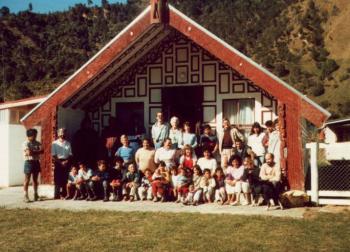
During the mid 1980s the Archive developed a bicultural process and constitution (known as the Kaupapa of the Archive) which is still in place today. It outlines the special place of indigenous film in the collection, and ensures that the archivists are clear about their position as guardians (kaitiaki), with all spiritual and moral rights firmly in the control of communities.
Although Jonathan had a very local focus, he visited archives around the world in the late 1970s to develop international relationships, particularly with Australia.
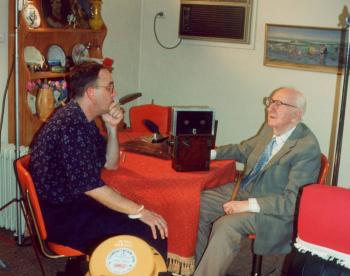
During the 1980s the reports of the International Federation of Film Archives (FIAF) describe the growing relationship between the NZFA and the NFSA. This allowed for the useful exchange of information and materials on films such as the 1925 Australia/NZ joint production The Adventures of Algy.
Jonathan resigned as director of the NZFA in 1990 but continued to work closely with archives in Australia and around the world. He made a film about the important early pioneering film figure from Aotearoa, Ted Coubray (Mouth Wide Open, 1998).
Ted (Edwin) Coubray lived at Rooty Hill in Sydney for many years and Jonathan filmed him there for the documentary. The NFSA had returned negatives of Ted’s films to the NZFA as early as 1983.
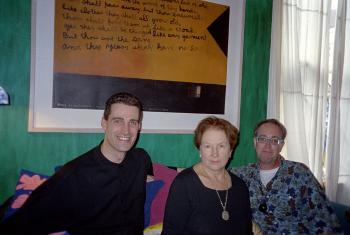
A further joint venture was Ocean of Time a soundscape co-production with Matthew Leonard of the ABC using archival sound materials, including some from the NFSA, to present the story of colonisation and its impact in the Pacific. This was broadcast simultaneously across the region for the millennium celebrations of 2000 and the accompanying website is still accessible.
Jonathan became increasingly interested in sound as a medium for presenting his ideas, and by 2000 had been broadcasting The Film Show on National Radio for seven years. Recorded and engineered by Gareth Watkins (and sometimes Jeremy Ansell) and produced by Elizabeth Alley, this groundbreaking radio show utilised layers of archival sound, effects, contemporary film snippets and Jonathan’s unique delivery to create a film show remembered fondly by many in Aotearoa today.
I look forward to delving into the NFSA collection and into the memories of its staff past and present to add to the growing collection of research on the NFSA and its connections to Aotearoa.
The National Film and Sound Archive of Australia acknowledges Australia’s Aboriginal and Torres Strait Islander peoples as the Traditional Custodians of the land on which we work and live and gives respect to their Elders both past and present.
